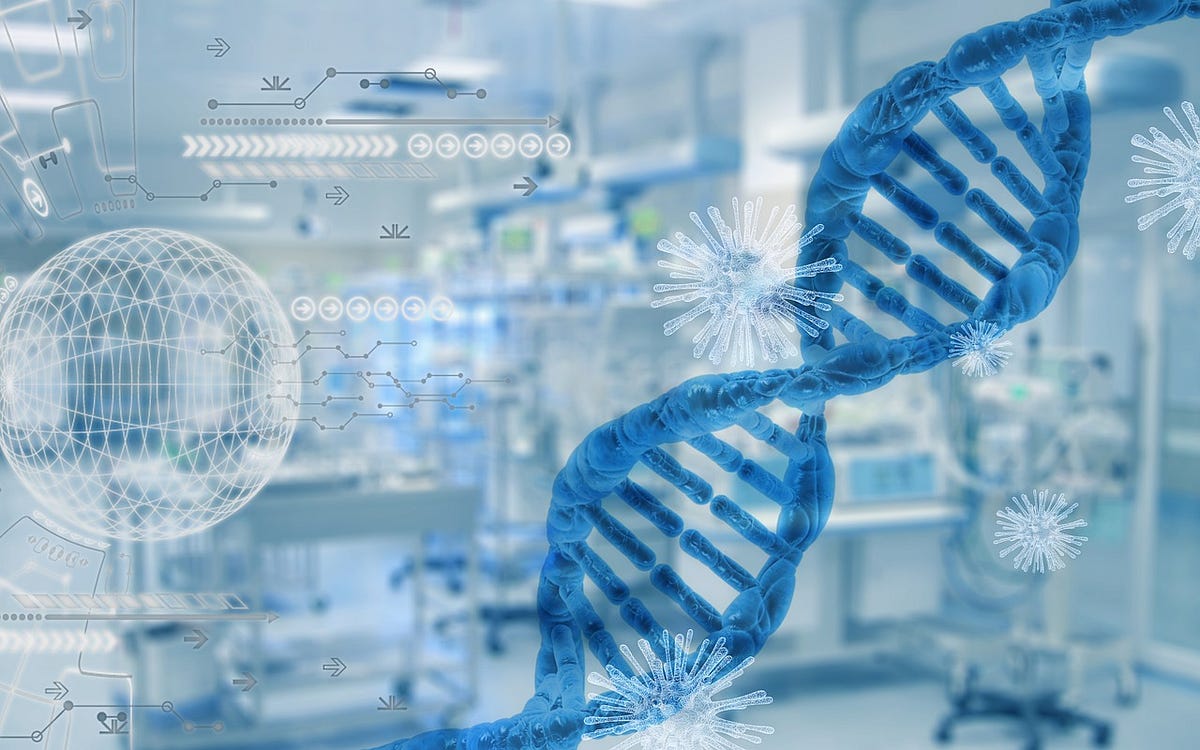Unlocking the Future of Healthcare: Exploring the Pioneering Scope of Biotech

The field of biotechnology has revolutionized the way we understand and interact with the human body. By harnessing the power of cells, genes, and biomolecules, biotech has paved the way for unprecedented breakthroughs in healthcare, medicine, and research. As we step into the future, the possibilities of biotech are endless, shaping a new horizon of medical advancements and treatments.
Glimpsing the Frontiers of Biotech: Emerging Technologies and Innovations
The recent years have witnessed a burgeoning growth in the biotech sector, with rapid advancements in various fields:
-
Gene Editing: The groundbreaking invention of the CRISPR gene editing tool has given scientists the precision to manipulate the code of life. This technology is being widely employed to treat genetic disorders and cancers, as well as develop novel therapies.
-
Artificial Intelligence: The convergence of biotech and AI has given rise to AI-driven disease diagnosis, targeted treatments, and personalized medicine. These breakthroughs are primed to redefine the medical landscape and transform patient outcomes.
-
3D Printing and Bioprinting: The incorporation of 3D printing in biotech enables the creation of intricate tissues, organs, and bioscaffolds for medical applications. This cutting-edge technology holds immense potential for regenerative medicine, prosthetics, and transplantation surgery.
-
Synthetic Biology: By engineering biological systems, scientists are discovering novel enzymes, compounds, and bio-components that could yield vital therapeutic strategies for diseases like cancer, diabetes, and autoimmune disorders.
-
Microbiome Research: The exploding field of microbiome science has shed light on the intricate connections between our microbiota and overall health. Therapies focusing on the microbiome are being developed to tackle various afflictions, from inflammatory bowel disease to mental health disorders.

Biotech Merges with Medicine: Thriving Clinical Applications and Breakthroughs
Biotech has successfully penetrated the realm of medicine, yielding myriad clinical applications:
-
Immunotherapy: Cancer treatment has witnessed a new era with immunotherapy, where the body’s immune system is harnessed to combat cancer cells. Such innovative treatments have led to substantial increases in cancer survivorship rates.
-
Enzymatic Testing and Monitoring: Biotech has given rise to high-sensitivity enzyme detection, giving healthcare professionals precise medical insights and transforming diagnostic procedures.
-
Antibody-Based Therapies: Novel antibodies are being engineered to mend damaged tissues and avert neuroinflammation, offering hope for multifaceted sclerosis, depression, and chronic pain management.
-
Automated Molecular Diagnostics: Gene sequencing technologies like Next-Gen Sequencing and Single-Cell Profiling offer fast-paced genome-wide diagnostic strategies, paving the way for comprehensive health management.
-
Biochemical Detoxification Systems: Inspired by nature, biochemically- optimized detoxification systems can rapidly remove toxin residues from the human body, promising respite from widespread chemical exposure.
Transforming Medical Education and the Workforce with Biotech
As the biotech landscape shifts, its impact on healthcare education and training becomes increasingly pressing:
-
Neuroplasticity in Medical Training: High-tech interventions in learning through AI-facilitated neuroplasticity development are poised to revolutionize medical education, possibly adjusting teaching methods.
-
Artificial Human Physiological Simulation: Emulating human biotronics, simulated models of human physiology provide artificial learning labs for optimal educational recontextualizing in the biomedical industry.
-
Access to Expertise through Innovative Mobile Devices: Hands-on approaches with lab-attainable app engineering devices can foster training for workers worldwide, eradicating information access disparities in the emerging biotech market.
Prerequisites for Thriving Biotech Firms and Medical Organizations: Key Gears in Gearing Up for the Future
Optimization of healthcare systems and medical organization are an essential prerequisite for successful integration into the emerging biotech sector. Here are the key pillars of transformation:
-
Digital Infrastructure Investments: Integration of digital healthcare infrastructure for streamlined research collaboration, patient tracking, telemedicine services, digital workspaces, advanced laboratory equipment, and informed insurance schemes.
-
Research-Savvy Cultures: Biotech-dedicated expertise building via seminars and intensive hands-on corporate training has to precede rapid technological integration in clinical medicine contexts, supported by seamless talent recruitment.
-
Continued Synergy with AI Development: Smart company relations facilitate collaboration with rising biotech-driven AI talents through open scientific discourse, all aimed to keep abreast of fast-paced advancements.
-
Policy Efficiency and Conformity: Development of policy responsiveness, that evolves to remain in step with fast-evolving cutting-edge legislation targeting healthcare, research finance, worker licenses and novel healthcare laws.
Share Your Biotech Story: Unlocking Healthcare Possibilities for the Globe
Biotechnology has transformed healthcare, offering unprecedented levels of discovery and treatment possibilities. Breakthroughs in cancer treatment, disease diagnosis, and personalized medicine transform patient prospects worldwide.
Join the conversation: Share the article with healthcare professionals, medical students, policymakers, researchers, and enthusiasts to ignite discussions about biotech’s transformative potential.


